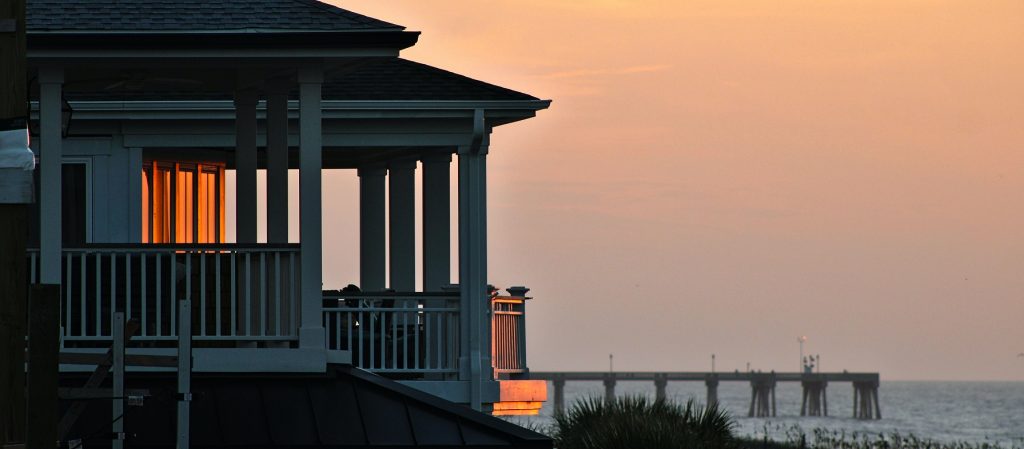
In 2022 and 2023 so far, Fortune magazine reports, 15 companies have stopped issuing insurance policies to Floridians. Most recently, it was Farmers Insurance, citing “risk exposure.” (Farmers subsidiaries will keep working within the state.)
AAA, while not backing out of Florida completely, says: “Last year’s catastrophic hurricane season contributed to an unprecedented rise in reinsurance rates, making it more costly for insurance companies to operate.”
What’s the message here for real estate buyers and owners?
Are Sunshine State Homeowners Being Left in the Shadows?
The insurer exodus means fewer companies stay and compete in the Florida market. In other words, homeowners have few insurance choices. To the extent that they’re still active in Florida, insurers have hiked premiums, passing their losses on to consumers.
And it’s not as if Florida’s house and condo owners haven’t paid their dues. They’ve been paying an average of $6,000 a year. That’s well over three times what most people across the nation pay to insure their homes, according to figures from the Insurance Information Institute.
And the prices keep rising. Some customers report being left in the lurch by companies that had already jacked up premiums by 25%. Some people are not able to deal with ever-increasing premiums, and are going without coverage.
Who’s to Blame? Insurance Companies Name Irma, Michael, and Ian
The triple whammy of three major hurricanes resulted in close to three million insurance claims. Billions of dollars were paid out. Some companies were strained past the breaking point.
When insurers go out of business, the Florida Insurance Guaranty Association accepts responsibility for the outstanding claims. (See Florida’s insolvent insurers listed here.)
Ultimately, Floridians shoulder the cost burdens, in the form of policy surcharges. Plus, when customers pay their premiums, they are also funding corporate legal fees. That’s because companies facing litigation pass the costs along to policy holders.
And we’re not even getting started on the massive replacement costs that have to be covered. Since 2020, both materials and work hours have shot up in price.
Home Insurers Tied Up in Court: AAA Decries “Excessive Litigation”
Eight out of ten home insurance lawsuits happen in Florida. Many of them are not legitimate actions.
Some involve a common storm-chasing ploy. Construction companies offer inspections to homeowners in the wake of disasters. Then they offer to replace the roofs. After extracting “assignment of benefits” agreements from homeowners, these construction businesses get the rights to file insurance claims related to the damage. When, after an insurance adjuster’s inspection, the payout is less than the amount first demanded, the contractor sues the insurer for the difference. The insurer loses funds whether it litigates or pays the claim.
For years running, AAA says, “excessive litigation” has made things hard for Florida home insurers. So AAA announced it would not renew certain high-risk policies.
Can Something Be Done? The Florida Legislature Responds
From 2021 through 2023, as reported by Bankrate.com, Florida lawmakers passed several insurance reforms, in order to:
- Establish the My Safe Florida Home Program, to distribute grant money to help Floridians fortify their homes.
- End one-way attorney fees. Until Dec. 2022, under Florida’s attorney fee rules, insurers had to pay for the lawsuits, plus the litigators’ legal costs.
- Confront certain construction firm ploys. Prevent homeowners’ assignment of claims to companies.
Obviously, heavy claims and manipulative legal actions follow destructive storms. The law can deal with this — to an extent. It can’t make up for the billions in damages that have already occurred.
An Insurer of Last Resort Feels the Heat, and a Tech Startup Comes to the Rescue

Slide Insurance of Tampa is a new, high-tech company that’s taking loans on from financially distressed Florida home insurers. Some homeowners are seeing their policies passed along to Slide. These policy holders can keep making their payments to have continuous coverage.
Slide also integrates artificial intelligence to underwrite new policies. At this time, Slide does not cover condos or rental properties. But that could change. Because of policy transfers from struggling companies, Slide has rapidly moved up the ranks to become one of Florida’s top home insurers. As the South Florida Business Journal just reported, Slide took on about 100,000 more policies from Citizens Property Insurance Corporation on Aug. 1, 2023.
OK, so what is the Citizens Property Insurance Corporation? If you’re a Florida homeowner, you probably know. It’s Florida’s state-backed, last-resort insurer. Citizens has accepted a high level of risk in recent years. It now holds more than a million policies, having stepped in while other insurers have backed away.
To try to manage risk, Citizens has announced that its policy holders need to have flood insurance. Citizens also wanted to raise its prices more than 10%, effective Sep. 1, 2023. The state balked, but did allow Citizens to hike prices by 6.4%.
What Florida Homeowners Should Do to Avoid Being Dropped by Insurers
A few insurers, such as Progressive, Universal, and Southern Fidelity, are staying in Florida but have pared down coverage. Some companies only want to insure new construction. And as some companies are justifying dropping existing customers’ coverage based on risk factors, it’s a good idea for Florida owners to take stock of those factors and act on them.
Bankrate.com is urging homeowners to inspect and maintain their roofs often. Policy holders who replace their roofs when they’re approaching 15 years of age may avert loss of coverage. Under the reformed Florida insurance law, companies have to cover a roof that’s been in place for less than 15 years and has at least five years of life expectancy left.
Bankrate.com also advises homeowners to install wind guards, and generally keep your home exteriors in good repair. Homeowners should deal with tree hazards that put a home at risk of wind damage.
As a rule, house and condo owners need to think twice about working with storm-chasing construction companies. Bankrate suggests they communicate with the insurer first about how to begin restoration.
What Next? One Thing Is Clear…
Insurance is awfully expensive. Recent hikes will make Florida homes harder to buy for years to come. As for companies staying in Florida to issue condo and house coverage, well, they aren’t offering bargains.
Florida homeowners were already looking at very high costs. And now, mortgage interest rates are rising, too. There are enough challenges without the huge hikes from homeowners’ insurance corporations. At least, as agents point out, the law will cap costs in the future. And technology could bring better ways to assess and reduce risk. We’ll see. Unfortunately, lawmakers aren’t well equipped to tame hurricanes.
Supporting References
Alena Botros for Fortune Media IP Limited, via Fortune.com: Trouble Awaits Florida’s Housing Market as the State Just Lost Another Home Insurer (Jul. 22, 2023).
Cate Deventer for Bankrate, LLC (a Red Ventures company) via Bankrate.com: Can Lawmakers Save the Collapsing Florida Home Insurance Market? (Apr. 24, 2023).
Christina Georgacopoulos (Tampa Bay) for the South Florida Business Journal (The Business Journals): Slide Insurance to Assume 100,000 More Citizens Policies in Latest Take-Out Agreement (Aug. 1, 2023).
And as linked.
More on topics: Disasters, Insurance fraud
Photo credits: Mike Delima and Rachel Claire, via Pexels.
